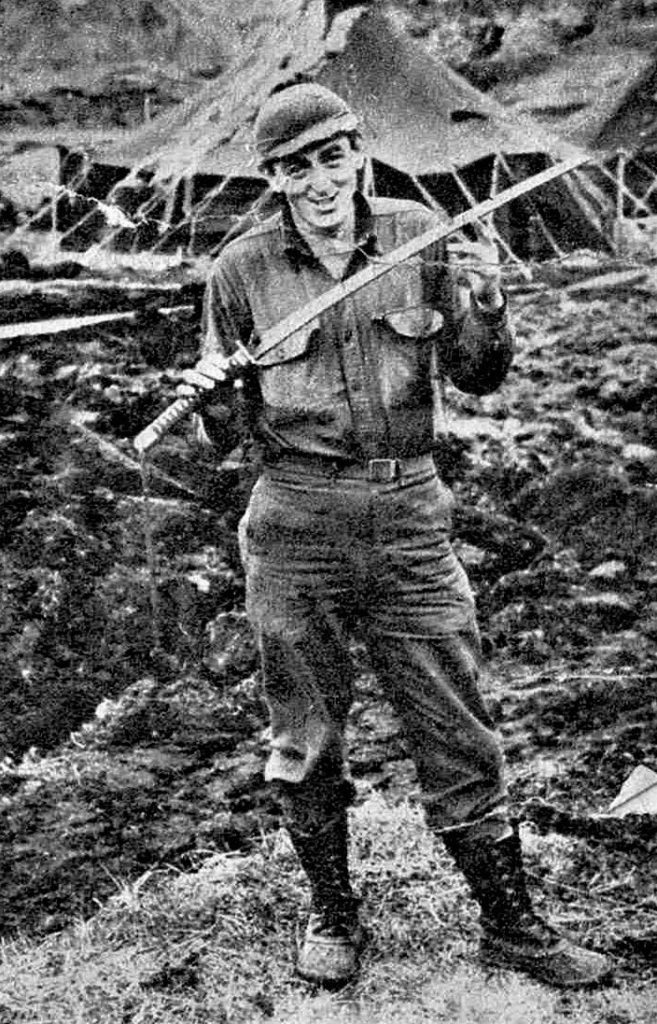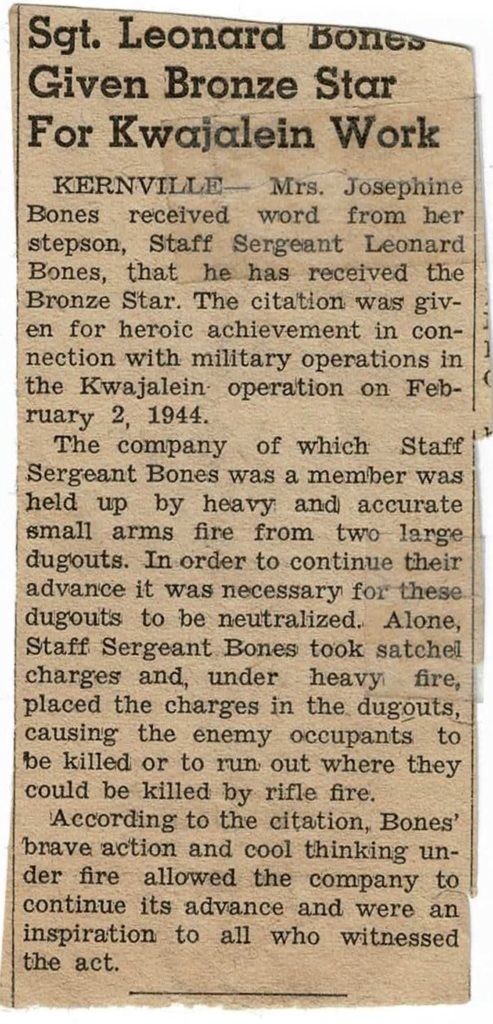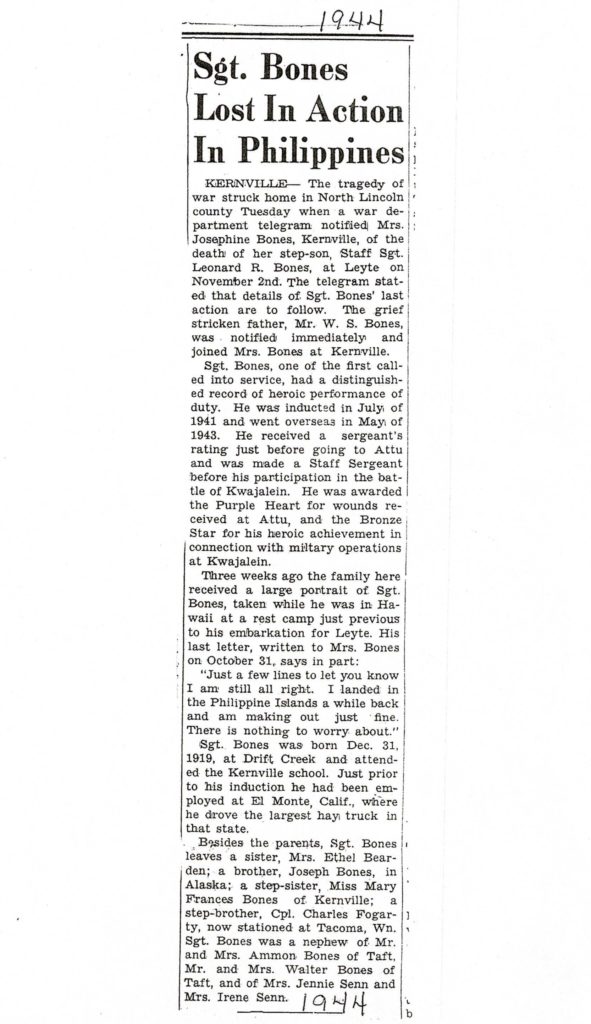
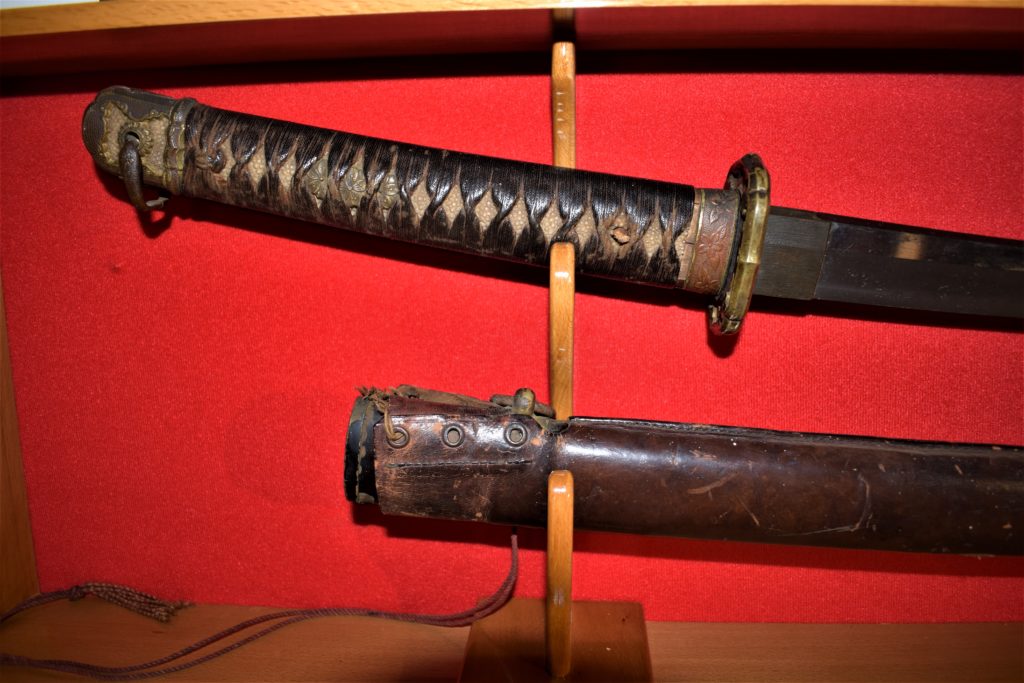
This Japanese Saber was taken by Sergeant Leonard Bones at the battle of Attu in May, 1943. He was awarded a Purple Heart after being wounded in combat during this battle in September, 1943.
Click on the photo below to learn more about the battle of Attu.
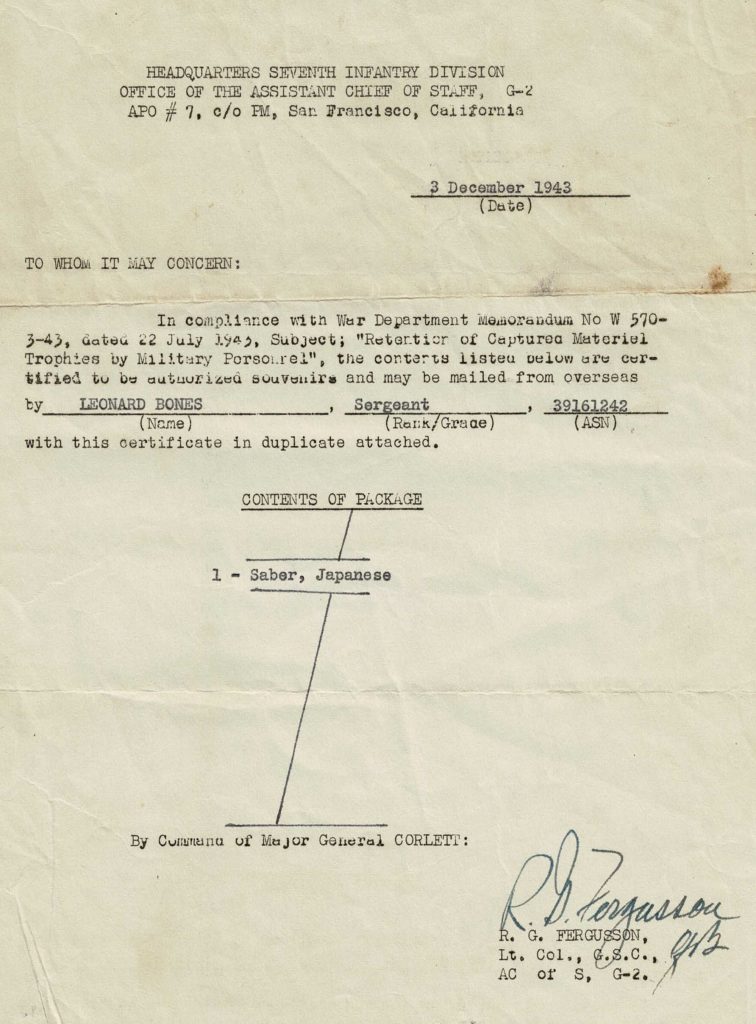
The Bones family have been a part of North Lincoln County history since 1904, when Leonard’s great uncle, John Wesley Bones, moved to their 150 acre homestead in what would later become Taft and Nelscott. John was the first postmaster/storeowner in Taft (and named the town) and donated the land for the Taft Pioneer Cemetery. Leonard was born in Drift Creek in 1919 and was raised in Kernville. His father was William “Billy” Stonewall Bones and mother was Birdie Bones.

He made a full recovery after the Battle of Attu and went on to fight in Kwajalein, Marshall Islands, in February, 1944, where he was awarded the Bronze Star for his bravery. Below is an article that highlights his bravery.
Click on the article below to learn more about the battle on Kwajalein.
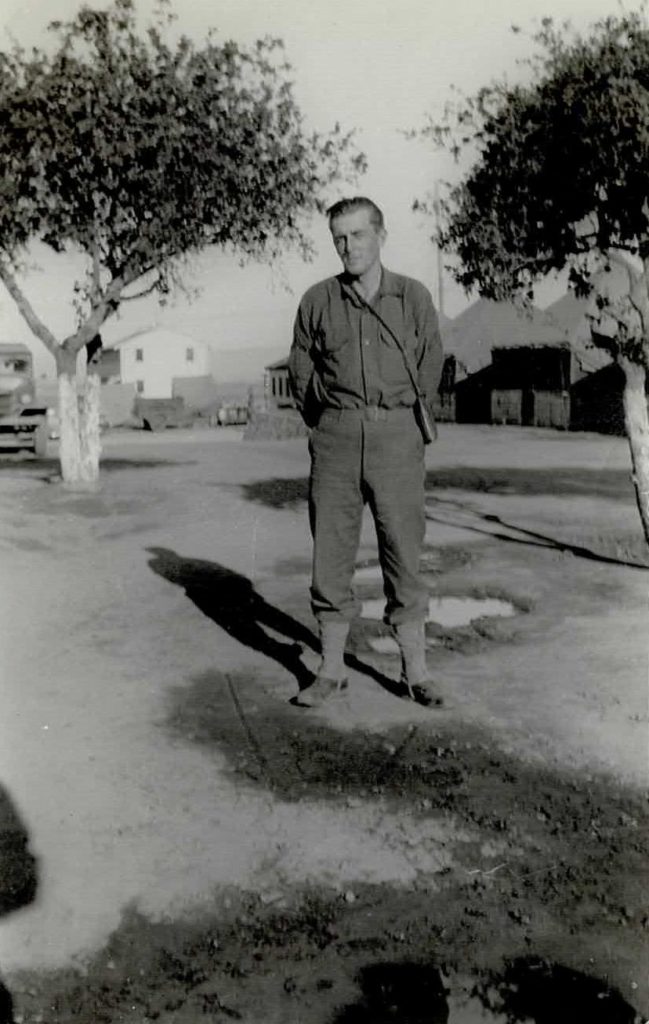
Tragically, Leonard Bones was lost in action in December, 1944, during a battle in the Philippines. The saber and associated information were donated by the Bones family in 2010.
Click on the article below to learn more about the battles in the Philippines.
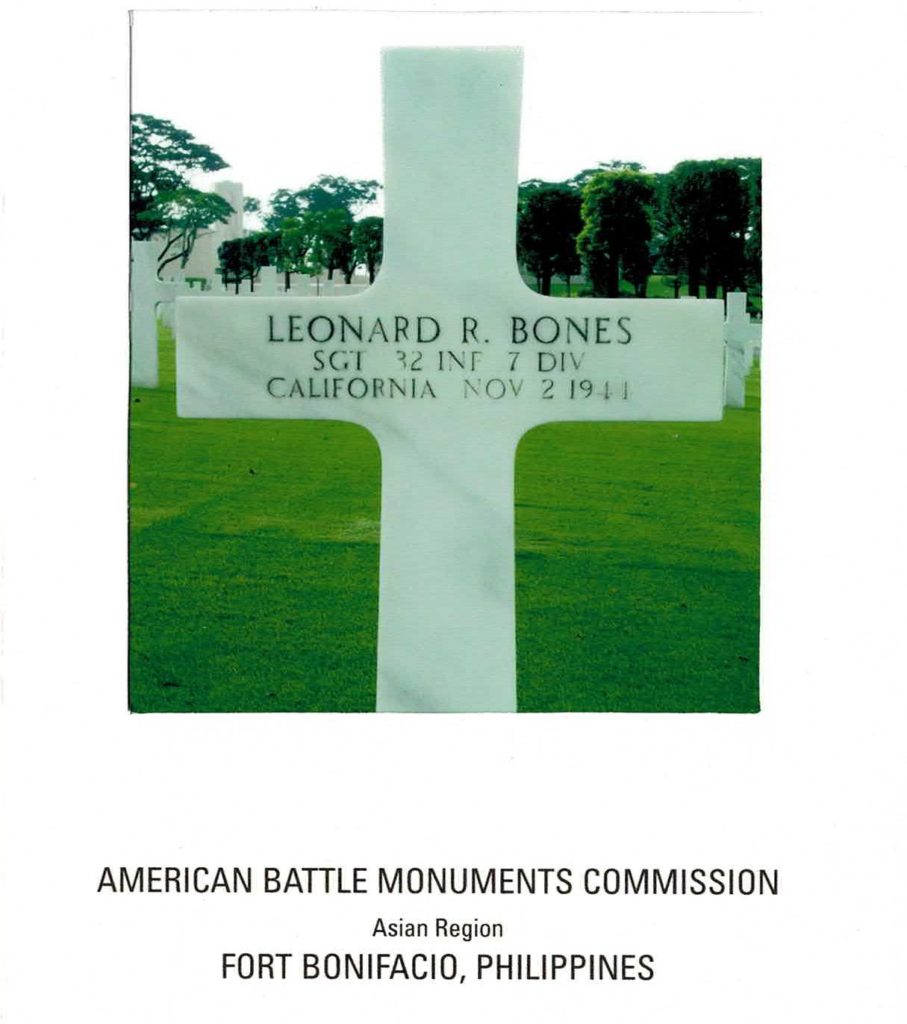
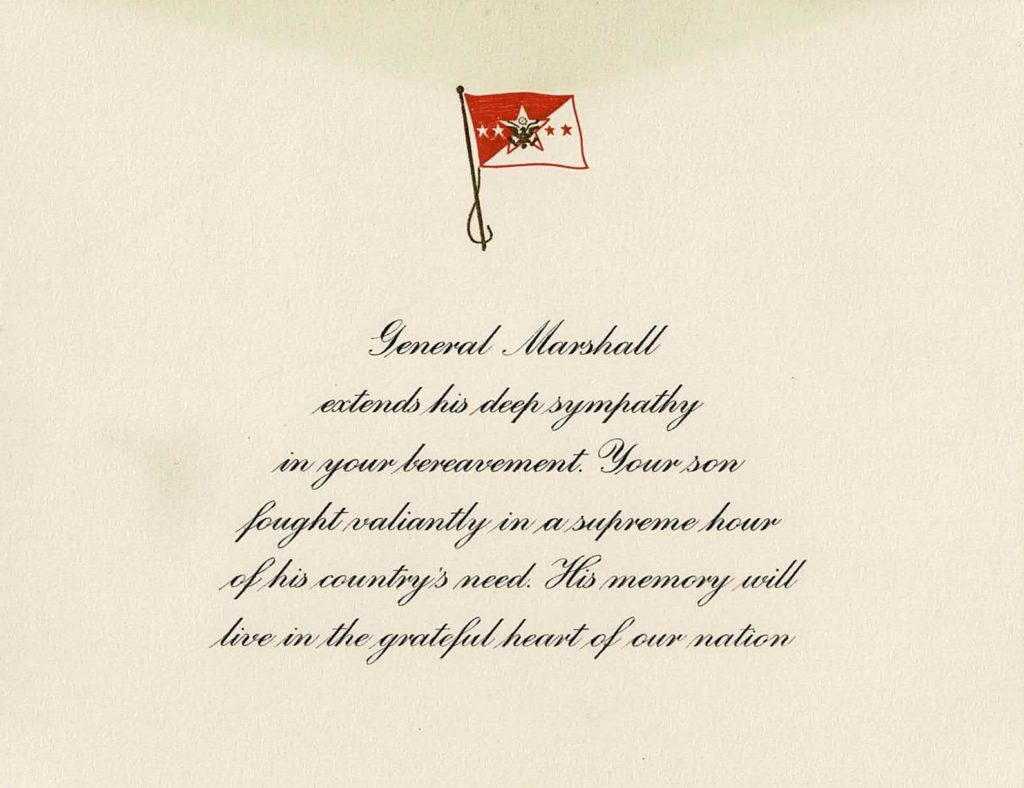
This Japanese saber tells the story of a local war hero, the sacrifices that soldiers made for their countries, and the perils of war. The saber and Sergeant Leonard Bones’ story are now preserved here at the museum and are currently on display in our WWII exhibit. Thank you to the Bones family for donating this piece of history.


